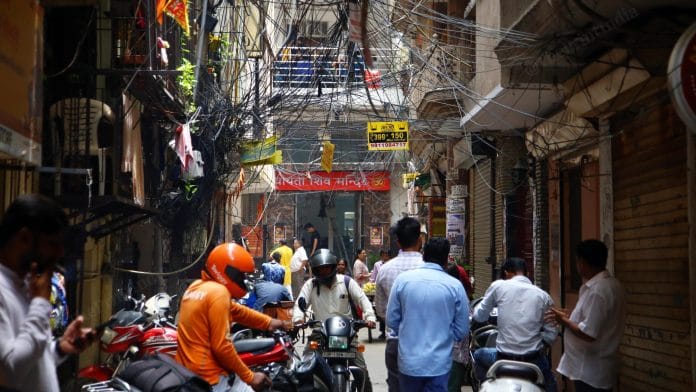New Delhi: It has been a week since the term ‘basement library’ brought dread in people’s hearts. But that was Old Rajinder Nagar’s UPSC coaching hub. In NEET and CA coaching centres, the complete ban on ‘basement libraries’ has caused a wave of anxiety. Twenty-five-year-old Akash Yadav, who is preparing for his post-graduation entrance exam on 11 August, is desperately searching for a library in Delhi’s Gautam Nagar, a known hub for medical aspirants. The basement libraries in this area have been abruptly closed without notice, leaving Yadav uncertain about his study options.
Yadav, originally from Haryana, has been residing in Delhi for a year and has seen little change in his locality.
“This closure isn’t justified. In a few months, these libraries will reopen and nothing will have changed. The real loss is ours because there are few libraries not located in basements, and those are already overcrowded,” said Yadav, a medical graduate from Sharda University, Noida.
Following the tragic deaths of three UPSC aspirants in a basement library, issues of poor infrastructure, inadequate drainage systems, and substandard living conditions have come to the forefront. However, these problems aren’t confined to Old Rajinder Nagar and Mukherjee Nagar. Medical student hubs like Gautam Nagar and CA student hubs like Laxmi Nagar face similar issues. The cramped and unsafe living conditions are just business-as-usual here and are indistinguishable from each other: narrow streets, tangled wires, and 5-6-storey buildings covered with advertisements for PGs, rooms, and coaching classes. Parents often sell land, jewellery, or take loans to send their children to big cities for preparation. Those unable to move to cities like Delhi opt for other hubs like Jaipur, Patna, and Pune. But these emerging centres face similar problems.
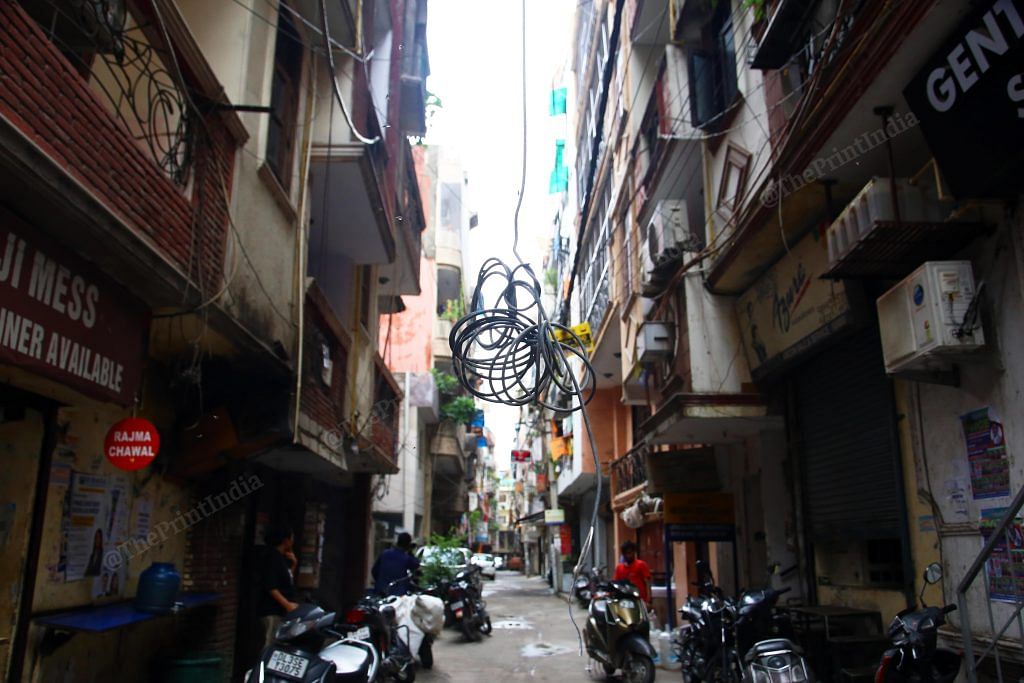
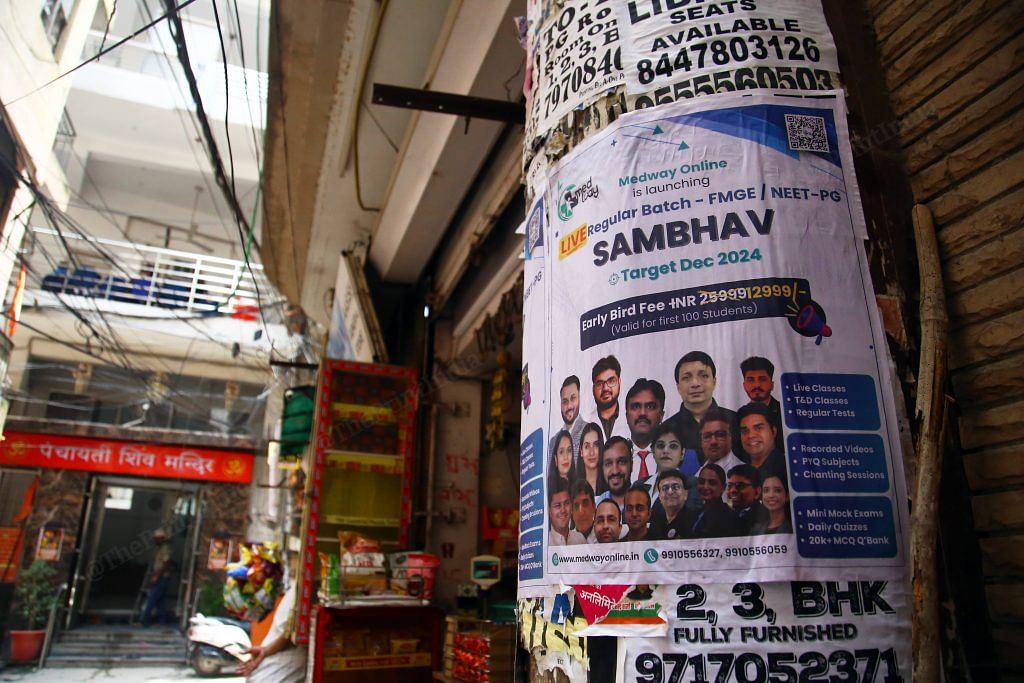
These residential colonies are witnessing a wave of houses converted into coaching institutes, libraries, and PG accommodations. Nearly every residential building has some form of commercial activity, whether it’s a shop, a property dealer’s office, or rental rooms.
“They’ve commercialised our lives and struggles. They charge exorbitant prices for tiny rooms. Since all the study materials and offline coaching classes are concentrated here, we have no choice but to move,” said Dr Amit Kumar, who completed his MBBS in China and is now preparing for his PG exams in Delhi.
They’ve commercialised our lives and struggles. They charge exorbitant prices for tiny rooms. Since all the study materials and offline coaching classes are concentrated here, we have no choice but to move
— Amit Kumar, preparing for PG exams
Around 10,000 medical students reside in Gautam Nagar, primarily foreign medical graduates from countries such as Ukraine, China, and Austria. Half of them are preparing for the FMG exam, which is required to practice medicine in India, while others are studying for the PG exam to secure a seat.
“There are around 50 libraries in Gautam Nagar and more than 10 renowned coaching institutes operating in basements. Gautam Nagar harbours over 10,000 doctors annually who come here for FMG and NEET PG coaching. After the Old Rajinder Nagar incident, library owners have temporarily shut down,” said Dr Manish Jangra, founder and chief advisor of the Federation of All India Medical Association.
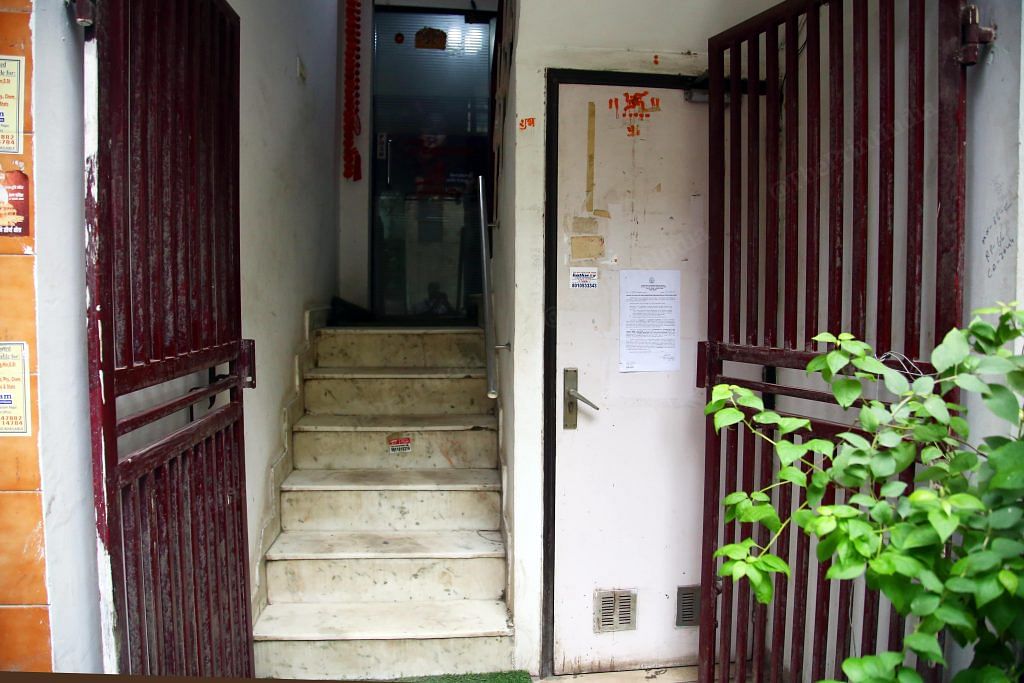
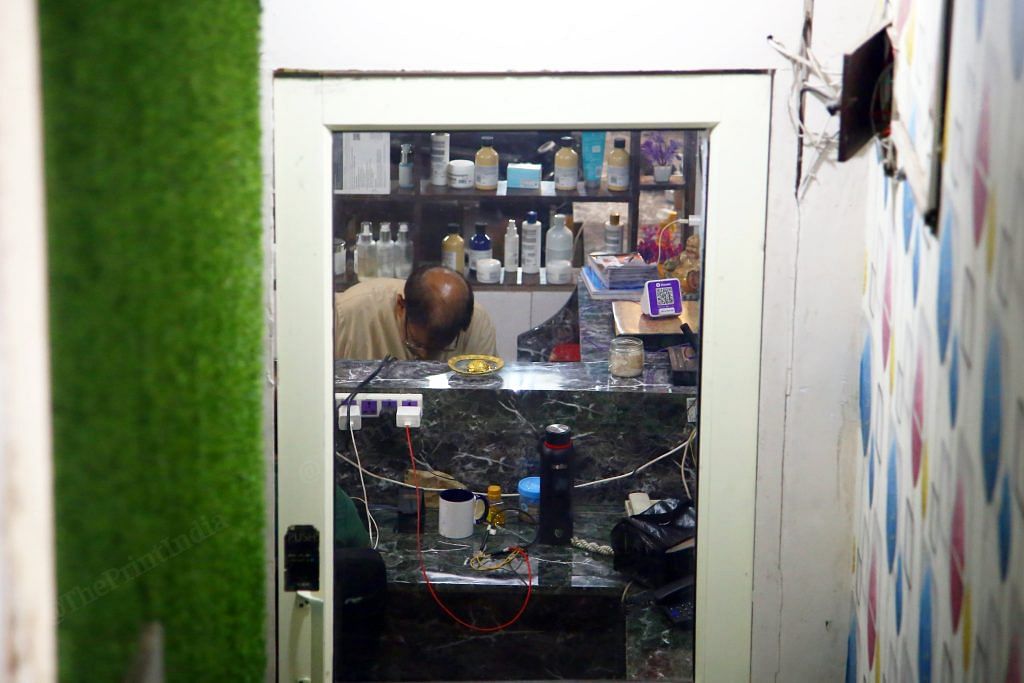
Market forces often take over, breaking legalities and imposing their rule on the underprivileged. The high demand for such public spaces means the ban is being slowly breached, and students are paying the price.
“Some libraries are reopening at night. Those on the first and second floors have doubled their fees from Rs 2,000 to Rs 4,000-5,000 per month. They’re exploiting students’ problems as the NEET PG exam approaches on 11 August,” Jangra added.
Some libraries are reopening at night. Those on the first and second floors have doubled their fees from Rs 2,000 to Rs 4,000-5,000 per month. They’re exploiting students’ problems as the NEET PG exam approaches on 11 August
— Manish Jangra, founder, Federation of All India Medical Association
After the abrupt shutting down of basement libraries and study spaces here, students are left searching for temporary solutions.
“Even parks or quiet staircases would work for studying. It’s hard to study in a room shared by 3-4 people. There should be better infrastructure for students preparing for these exams,” said Suraj Upadhyay, who completed his MBBS in Austria.
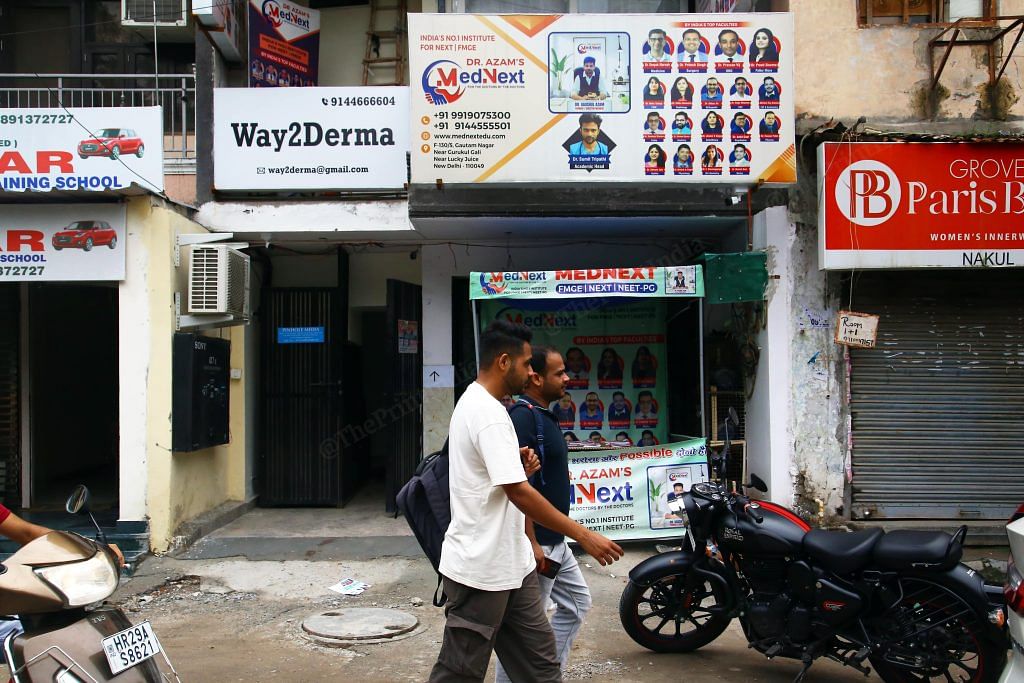
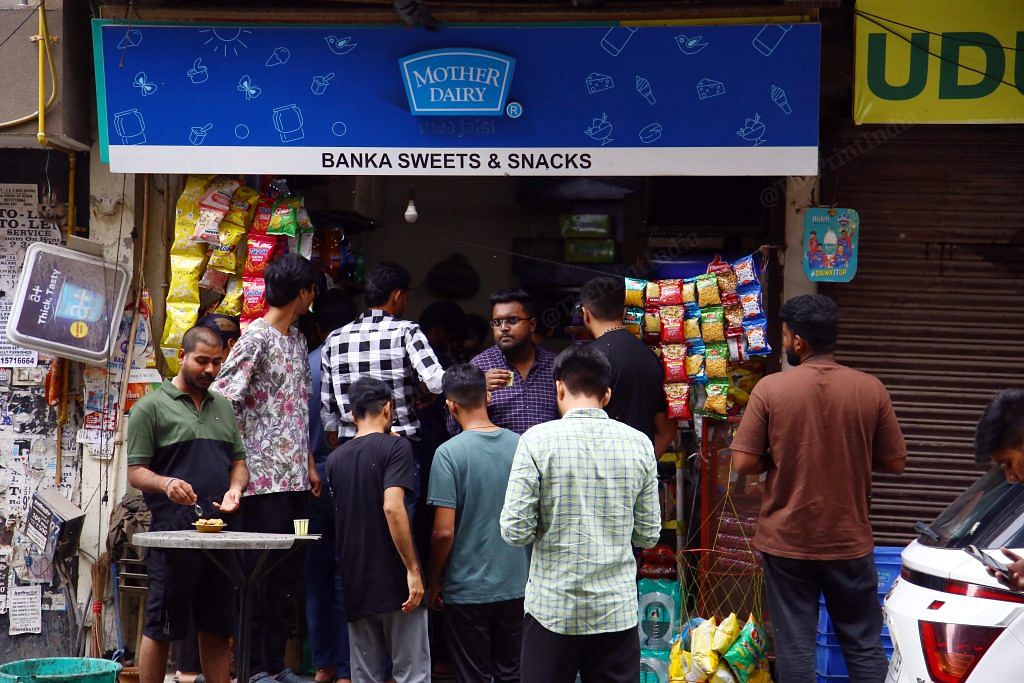
Also read: Broke, burnt-out & now bereaving—the crushing cost of UPSC aspirations
A scary situation for newcomers
Twenty-two-year-old Sachin Shah, who arrived in Gautam Nagar from Assam just a week ago, is still familiarising himself with the streets and shops. He is “scared” after the deaths of the three UPSC aspirants. Every time it rains, he fears something bad might happen. His college friends, also here for FMG exam preparation, preparing, share his concerns.
“After arriving, I joined a basement library with only one exit and a capacity of 35-40 students. It filled up quickly. My worry is that if water enters the library, how will we escape?” Shah said, while eating samosas with a friend in the narrow streets of Gautam Nagar.
These libraries operate 24/7, with basement libraries charging Rs 1,800 to Rs 2,500 monthly, depending on facilities. Libraries on the first or ground floors charge more but are scarce.
These libraries operate 24/7, with basement libraries charging Rs 1,800 to Rs 2,500 monthly, depending on facilities. Libraries on the first or ground floors charge more but are scarce.
“Some libraries charge even Rs 3,000. But we have already paid for the basement libraries, which are now closed,” Shah said.
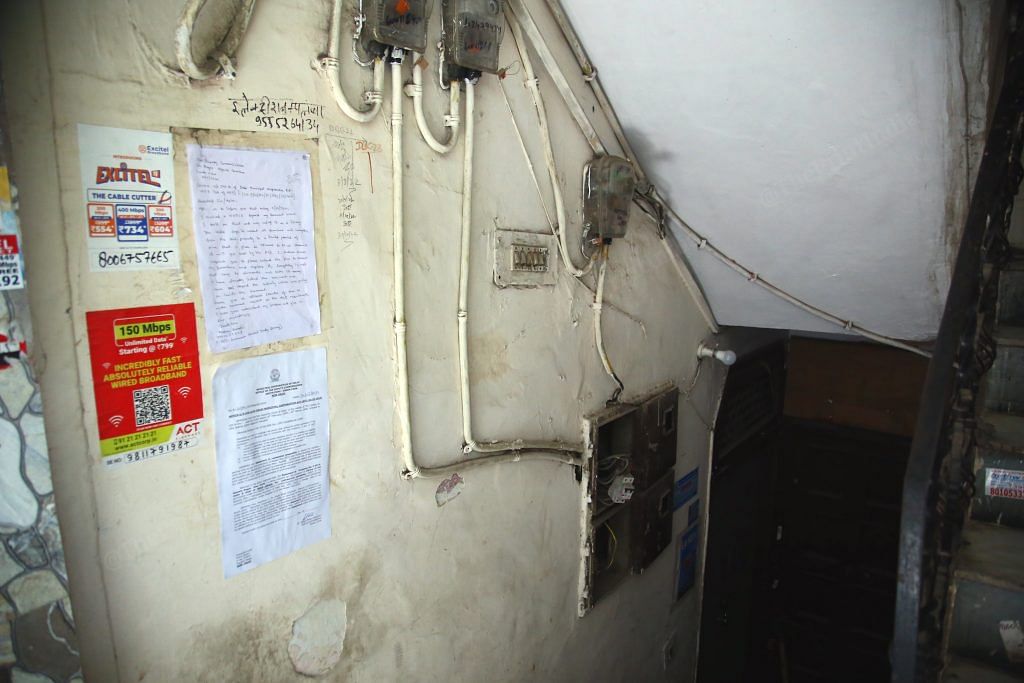
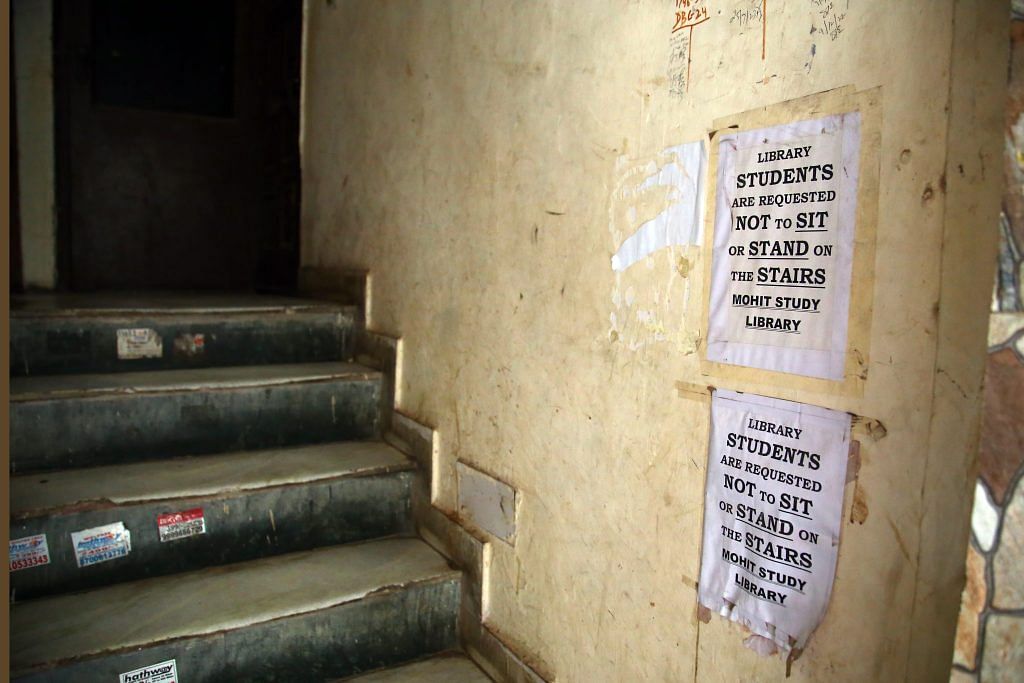
Many libraries have removed their signs and posters following the Old Rajinder Nagar incident, and now their doors are locked. No one admits a library even existed before.
“I don’t know what you are talking about. Our basement has been closed for a long time,” said a landlord who previously operated a library, when asked about the locked basement and removed signage.
A small room costs at least Rs 10,000 a month, while a bigger room costs double, around Rs 20,000. Many students share rooms to cut costs and invest in better libraries, using their rooms solely for sleeping. In some cases, four people share a one-room apartment, with two sleeping in the room and two converting the hall into sleeping space.
Many libraries have removed their signs and posters following the Old Rajinder Nagar incident, and now their doors are locked. No one admits a library even existed before.
“I have a tiny room with just a bed and a small almirah, not even a chair. It’s impossible to study there. I chose this small room knowing I would be studying in the library for 14 hours a day and eating outside. But now, with all libraries closed, I am forced to study in my room,” said Dr Naveen Kumar, who left his job and has been preparing for his PG exams for the past 10 months.
Yadav’s parents, frightened after the Old Rajinder Nagar incident, call him every day, urging him to leave Delhi and return to their home in Sirsa, Haryana.
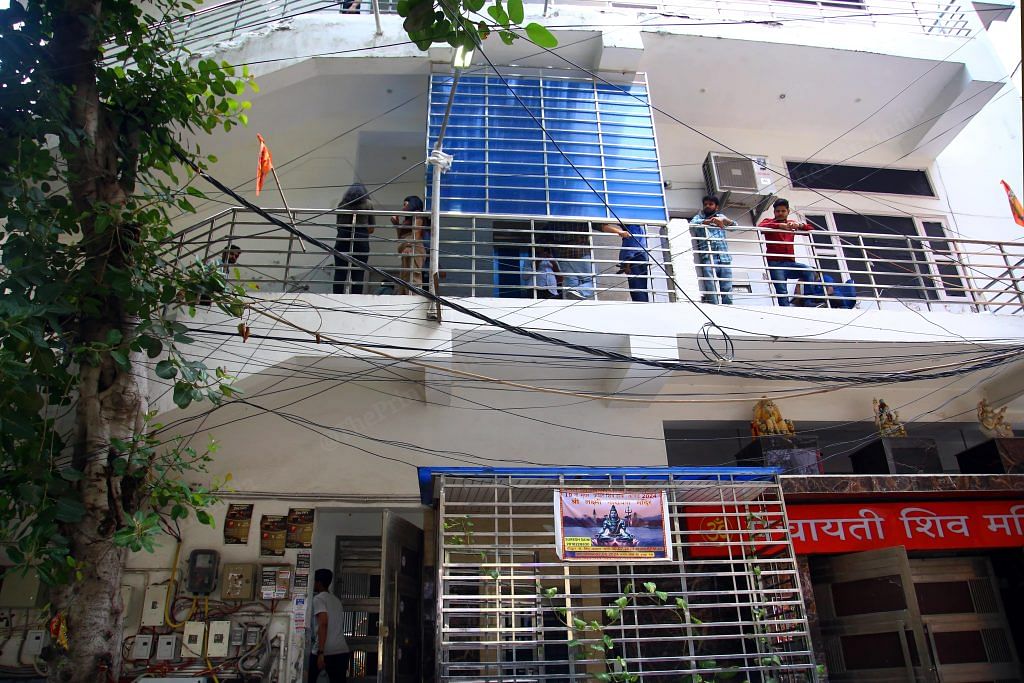
“They say life is more important than the exam. But how do I explain that life won’t have any meaning for me without this exam? These exams are our pathway to a better life. Besides studying, we deal with landlord disputes, broker arguments, and poor-quality food. All these issues contribute to the problems an aspirant faces,” said Yadav.
Also read: UPSC aspirants’ desperation & the coaching mafia exploitation. ‘No one sees us as human’
Laxmi Nagar
Upon exiting the Laxmi Nagar metro station, one is greeted by large hoardings and posters announcing the area as a hub for aspiring chartered accountants (CAs). Street vendors near the metro sell a variety of goods—phone covers, fruits, momos—and also act as brokers, helping students find rooms or PG accommodations, often taking a cut of the rent as their fee. It’s a world unto itself.
“There are thousands of students here. New students want rooms or PGs, while old students want to change their rooms. Business is good. Sometimes, there are arguments with clients, but that happens in every business,” said Kama Chauhan, a broker in Laxmi Nagar for the past 15 years.
With over 70 coaching institutes, Laxmi Nagar is a hub for aspiring CAs. Posters featuring toppers and renowned teachers are prominently displayed on hoardings to attract students. The area also offers a variety of food options, from upscale dining restaurants to street vendors selling litti chokha and momos.
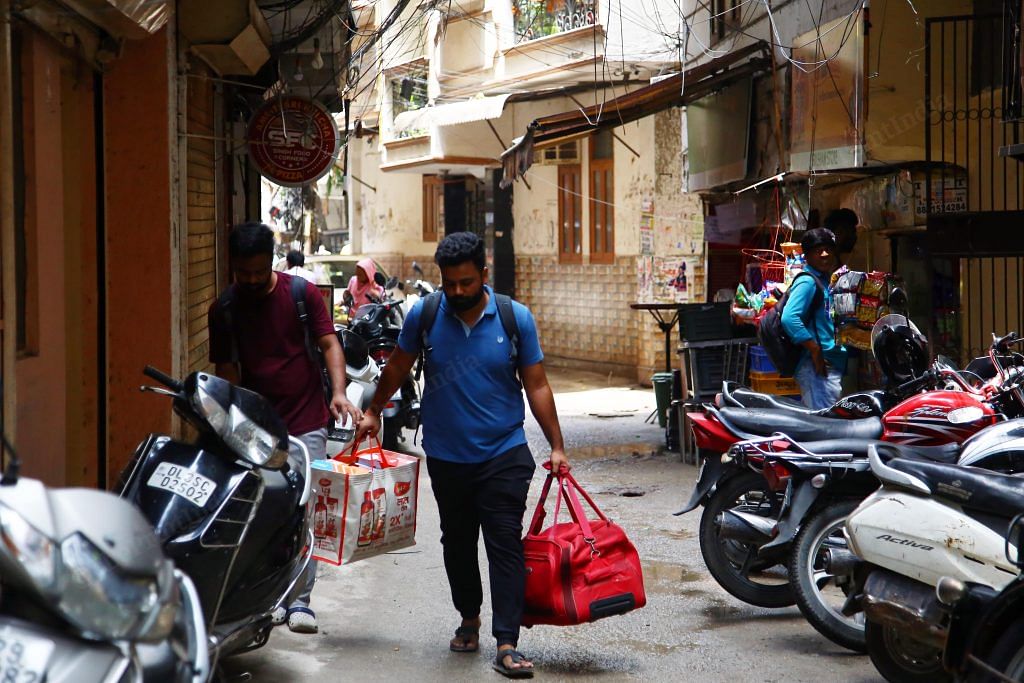
“All the basic facilities are here, but it’s very congested. This is the market area, and everyone living in Laxmi Nagar has to pass through it to reach their PGs and rooms. When it rains, it becomes difficult to navigate due to waterlogging. For landlords and brokers, our issues don’t matter. They only care about money,” said 28-year-old Deepak Kumar, a student at a coaching centre in Laxmi Nagar.
Kumar argued that these places aren’t suitable for a large-scale coaching industry. He suggested that there should be designated areas for coaching classes, hostels, and libraries.
The aspirants also complain about landlords ignoring maintenance work in PGs. “Aspirants end up fixing water motors and electrical issues themselves. Coaching institutes never appeal to landlords to reduce rent,” said Vijay Tripathi, an aspirant from Prayagraj who lived in Delhi for three years until 2022.
Property owners in these areas rely on rent as their primary income, not as a side business.
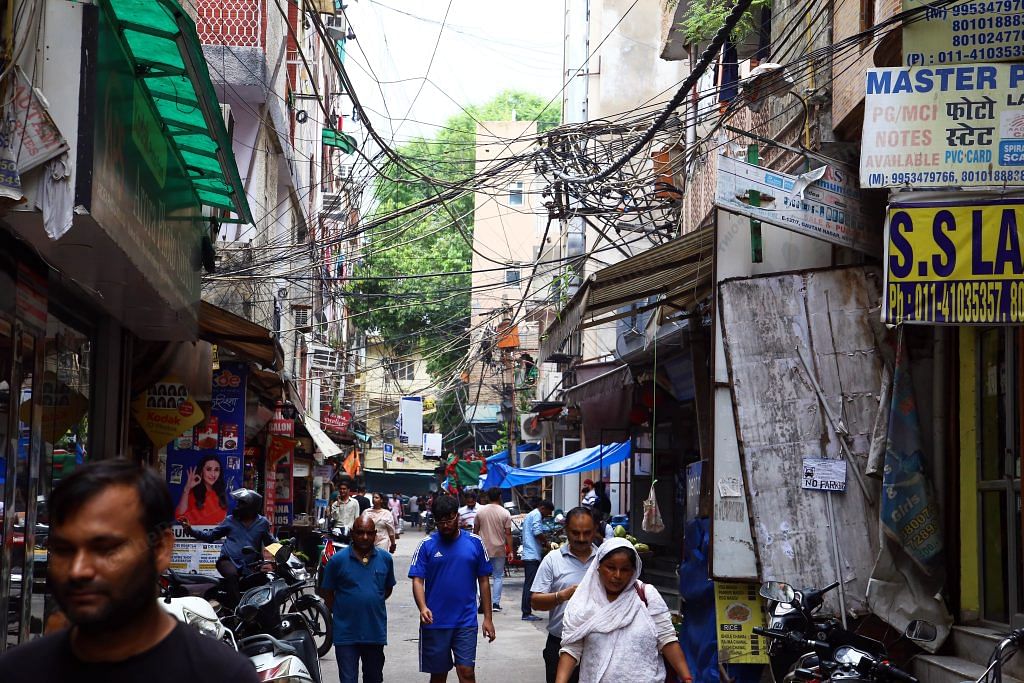
“Property dealers in Karol Bagh, Mukherjee Nagar, Nehru Vihar, Gandhi Vihar, Wazirabad, and other student areas treat students as ATMs. The situation is similar in Prayagraj, Lucknow, and Kota. If students didn’t come to these places, it would be difficult for them to earn a living,” Tripathi added.
Currently, UPSC aspirants are demanding public libraries and a grievance cell in coaching institutes to help deal with landlords and brokers. They have been protesting since the deaths of three students who drowned in a flooded basement library.
“In countries like South Korea, there are dedicated areas with proper infrastructure for coaching institutes. They have hostels, libraries, and coaching institutes all in one place. In India, such a thing is only a dream,” said Amit Kumar.
With only a week left before the exam, Yadav and other students are struggling to find study spaces. They have formed a group to connect with those who have large apartments.
“My productivity has gone down by half. I can’t study in my room. We’re reaching out to students with big apartments to let us study there, but no luck so far,” said Yadav, heading back to his room from a tea shop.
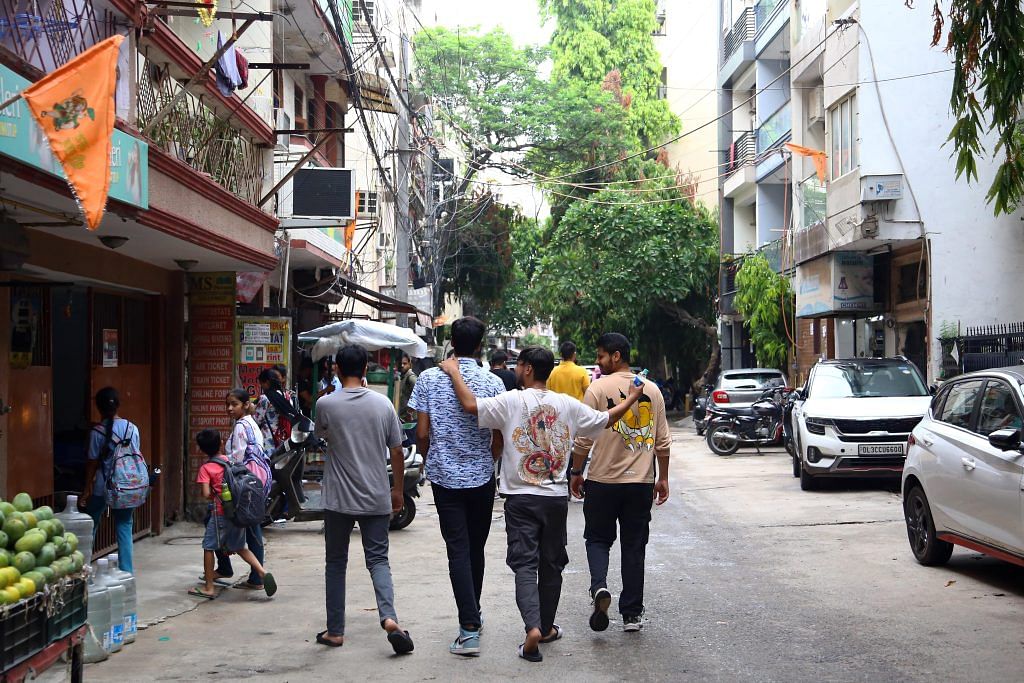
(Edited by Prashant)



